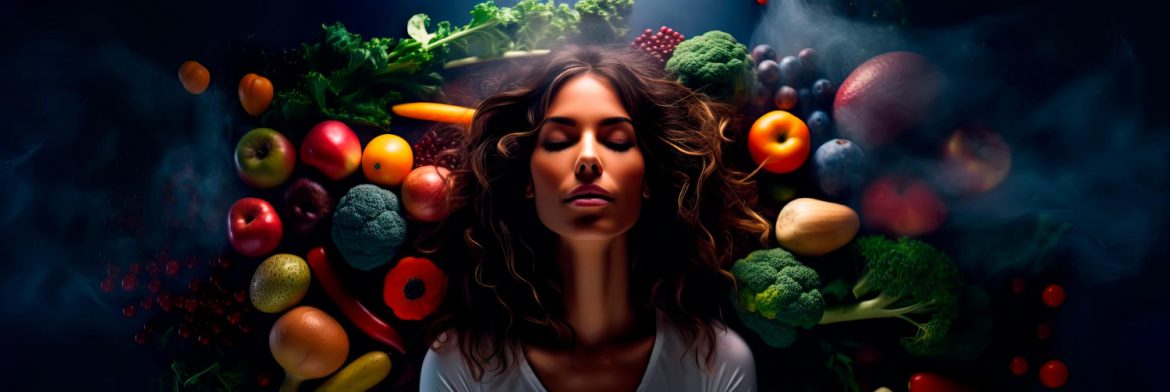We live in a fast-paced world where prioritising mental well-being is more important than ever. While traditional approaches to mental health often focus on therapy and medication, an emerging field known as nutritional psychiatry is shedding light on the powerful connection between diet and mental well-being. In this blog post, we’ll delve into the fascinating world of nutritional psychiatry and uncover how nourishing your body with the right foods can support a happier, healthier mind.
The Gut-Brain Connection: The gut-brain axis is a complex network of communication between the gut microbiota and the brain, playing a crucial role in regulating mood, cognition, and emotional well-being. Research has shown that an imbalance in gut bacteria, known as dysbiosis, may contribute to the development of mental health disorders such as depression and anxiety. By nourishing your gut with a diverse array of fruits, vegetables, whole grains, and fermented foods, you can support a healthy microbiome and promote optimal mental health.
Mood-Boosting Superfoods: Certain foods are known for their mood-boosting properties, thanks to their rich nutrient content and ability to support brain health. For example, omega-3 fatty acids found in fatty fish like salmon and walnuts have been shown to reduce inflammation in the brain and improve mood. Similarly, foods rich in antioxidants, such as berries, dark chocolate, and leafy greens, help protect brain cells from oxidative stress and support cognitive function.
The Impact of Processed Foods: On the flip side, diets high in processed foods, sugar, and unhealthy fats have been linked to an increased risk of mental health disorders. These foods can disrupt gut microbiota, promote inflammation in the body, and impair brain function, leading to symptoms of depression, anxiety, and cognitive decline. By minimizing processed foods and prioritizing whole, nutrient-dense foods, you can nourish your body and mind from the inside out.
Personalized Nutrition: It’s important to recognize that there is no one-size-fits-all approach to nutrition and mental health. Each person’s biochemistry and nutritional needs are unique, and what works for one individual may not work for another. That’s why personalized nutrition is gaining traction as a powerful tool for optimizing mental well-being. By working with a registered dietitian or nutritionist, you can develop a customized eating plan tailored to your specific needs and goals.
Mindful Eating: In addition to choosing nourishing foods, practicing mindful eating can also support mental well-being. Mindful eating involves paying attention to the sensory experience of eating, including the taste, texture, and aroma of food, as well as the sensations of hunger and fullness. By slowing down and savoring each bite, you can cultivate a greater appreciation for food and develop a healthier relationship with eating.
In conclusion, the link between nutrition and mental health is undeniable. By nourishing your body with whole, nutrient-dense foods and supporting a healthy gut microbiome, you can optimize your mental well-being and support a happier, healthier mind. So, the next time you sit down to eat, remember that you’re not just fueling your body—you’re feeding your brain as well.



